Detroit: Become Human is the game David Cage has been threatening to deliver for years.
His previous work with Fahrenheit, Heavy Rain, and Beyond: Two Souls had established a strong fanbase, with some high praise but plenty of criticism, not least for the their gameplay limitations and use of unnecessary plot devices. Detroit, however, feels like the experience he’s always wanted to produce, the final result of years of experience and trials of experimentation with the medium.
Not only is Detroit a technical wonder; it boasts a powerful narrative, empathetic characters, and tackles complex themes in meaningful ways. The gameplay has largely remained intact from its predecessors — so those who found Cage’s earlier works unsatisfying as actual video games will likely remain unconvinced by this newest outing — but for those who have enjoyed the interactive cinema and decision-oriented focus, this could potentially be the pinnacle of video games and movies merging into a compelling whole.
Set in 2038 Detroit, where autonomous androids live parallel with their human masters, the story tasks itself with tackling themes of the meaning of life, oppression of minorities, acceptance of slavery, the dangers and fears of ever-advancing technology, fostering community, and social acceptance. Though this has not been something the gaming industry has particularly excelled at in recent years, developer Quantic Dream attempts to do just that with aplomb, allowing players freedom of choice to shape their own interpretation of these while holding a core narrative that offers the foundation for players to truly question their own sense of morality.
Detroit is definitely not perfect, and it won’t appeal to everyone, especially those who prefer their games to be less thinking- and more action-oriented, but it provides another incredible addition to Sony’s exclusive roster, and offers a real contemplation of real-life issues tied within a fantastic interactive framework.
The Eye for Detail
Throughout your entire experience of Detroit, from the first moment you take on the roles of the protagonists, you’ll be hard pressed to find anyone that would disagree with the game being a technical marvel. Facial animations are incredibly lifelike: eyes portray emotions before words are spoken, lighting effects shimmer across faces and character models, voice-acting and motion capture is top-notch (for the most part), and overall it provides the kind of production values that we always hoped we would see from this console generation. The graphical prowess creates a phenomenal feeling of immersion and connection with the world’s characters, allowing ease of empathy and helping to establish the beings of this world with a true aura of actually being — ironic given the nature of its themes. Seriously, the difference between an android’s facial work and animation in comparison to human flesh is astounding. It develops a living and breathing world that’s easy to buy into.
Speaking of the world, 2038 Detroit is gorgeous. Quantic Dream has poured plenty of love and attention to detail into their environments, creating stunning vistas. In a world where humanity is in the process of integrating androids into normal life, the cues surrounding the characters are even more important than just the personalities you control. Humans will shun your character, shops will be closed off to you, you’ll witness androids being subjected to all manner of abuses and humiliations. The city feels organically alive, a hive of activity and a genuine peek into a potential future as technology imbues itself within our daily lives. The impact you have on the world around you is also felt later, as opportunities to leave your legacy upon the space around you open up. The use of readable magazines littered throughout the environment also do a great job at fleshing out the type of world you’re inhabiting, providing a sense of this being almost an alternative timeline of our current real-world events.
The overall presentation of the game is unparalleled, exemplifying stunning design and craft, which, minus a couple of clipping issues — my character appearing to merge with another when I moved too quickly through a section being a highlight — barely dented the almost perfect aesthetic delivery.
What Is It to Be Alive?
Once you’re done marveling at the technical beauty, you’ll notice there’s a story pulling you along through the experience too. Slipping into the roles of androids Markus, Kara, and Connor, you’ll switch between three distinct perspectives and witness the full spectrum of hope, crushing defeat, tension, and small victories. Their stories eventually intertwine, and the buildup through the acts feels distinct. The initial opening sequences have each performing relatively routine activities as you get to understand their contexts, but they quickly develop as personalities and offer distinct narrative perspectives. By the end of the game, I felt gripped, unable to tear myself away as the final third ratcheted up the ante. A couple of places can feel a little slow, but compared to Quantic Dream’s previous outings, the pacing is much better-handled and keeps things moving at a good clip — rapid when it needs to be, slower when you need a moment to catch your breath.
No spoilers at all here, as every person’s first experience will be completely different. However, this is a Cage experience, which means choice and decision-making are at the fore. Do you choose to be pacifistic or confrontational? Do you challenge your existing programming or obey it blindly? Detroit offers a staggering amount of genuine choice and autonomy of your experience. Unlike in some choice-driven games, even (apparently) minor decisions, mistakes, or rash assumptions will have serious repercussions. Trust me, the feeling of choice-remorse is powerful. It feels like living on a knife edge in the best possible way — each dilemma is impactful. As always, though, there are some choices that feel as if they should have had a more dynamic effect on the overall story, while some others seemed so inconsequential it was baffling when they came back to haunt or unexpectedly benefit me. Getting the balancing of this particular aspect must be incredibly difficult, and some of the forced decisions mean ending a segment when it feasibly should have been possible to see both branching trees, which was somewhat frustrating.
It’s the heartfelt moments that will have you moving forward, though, with Kara’s story truly hitting those serious emotional strings. I was surprised at how much the story managed to move me in places, which is fantastic when many interactive stories fail to build a real connection with the player.
More Than Just a Walking Simulator
The story is the core of Detroit, propelling the whole experience forward, and while gameplay has been a much-criticized part of games like Beyond: Two Souls for feeling too on-rails, inconsequential, and, at worst, pointless, it’s enhanced and improved in this latest showing. Yes, small areas with multiple interact-able objects return. Yes, there are still a lot of QTEs to simulate fights and battles. Yes, there are still invisible barriers everywhere, and yes, you will still spend some of your time jankily walking around some areas with little to do between points A and B, lamenting your character turning with the speed of an unconscious elephant. There are some small additions, such as Markus’ ability to preconstruct parkouring sequences, or Connor’s opportunities to scan out crime scenes, but many of the mechanics remain consistent.
What’s improved this time around is that there are fewer of the slower, enclosed sections, and there’s more of the fast-paced, action-oriented pieces. You’ll experience the typical tropes: on-foot chases, dodging cars on highways, engaging with NPCs, quickfire button inputs, etc. But, there’s also much more of the investigative sections (which, if failed, will have consequences later on), more of the multi-decision scenarios with branching outcomes, more of the putting together and executing of well thought-out schemes. There’s a more satisfying feedback loop of completing a section the “ideal” way, as there’s multiple avenues for failure or missing something important. The frequent use of time-constraint fuels this to fantastic effect. Three minutes to find a deviant (renegade android), ten minutes to find all the clues you can, ten seconds to decide your next action against the person pointing a gun to your head. Using restricted time fosters a palpable sense of tension, it creates rash decision-making, and it gives Detroit a sense of urgency that keeps the momentum of the game moving at a rapid pace.
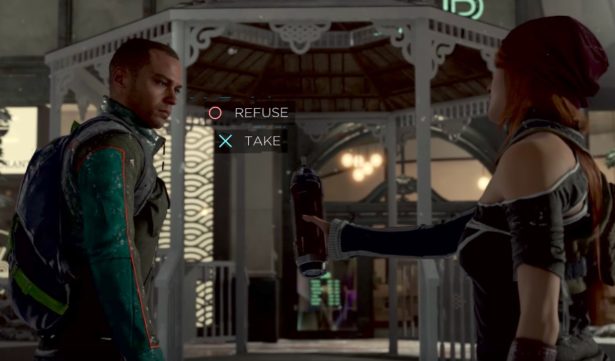
That’s not to say it doesn’t have its bland moments. Clearing trash and setting the table are no more interesting this time around than they were in Heavy Rain or Beyond, even if they do serve a narrative purpose. Some outcomes also seem unmissable unless you truly try to screw up the QTE sections, so getting to the “best” outcome can appear somewhat obvious in places. There’s a definite feeling of familiarity in the gameplay, so if you’ve hated this form of interacting with a game world before, it’s certainly not going to change your mind now; it’s just more spruced-up and injected with some much-needed urgency.
Sending a Message
Whatever you think of the game itself, it’s commendable just how brilliant a job Quantic Dream has done in injecting powerful themes throughout the experience: racism, privacy, advertising, abuse, the nature of autonomy, segregation, prejudice. Detroit is brimming and practically overflowing with opportunities to witness and challenge your beliefs. Rather than just presenting it, however, you’re provided with the means to shape how these themes play out, becoming somewhat of a testing ground to see how your particular values will interject within the woven narrative.
Ultimately, this is where your enjoyment or value of the game will be derived from — how willing you are to absorb the world and its story, and then stamp your own moral framework upon it given the opportunities it offers up. There’s a serious amount of replayability potential here, with the end of each chapter displaying a flowchart documenting your choices, alternative potential paths, and statistics of how many followed the same routes you did. It makes for a fascinating opportunity to reflect on your own progression and tempts you to jump back in immediately after finishing to see just how different the scenarios can play out. I’ve rarely felt compelled to replay story-driven, choice-focused games in the past; this is one I can envisage replaying a number of times before moving on, which is the greatest compliment I can provide it.
Special mention must also go to the soundtrack, which is phenomenal throughout and punctuates the scenes with incredible emotion. The tracks complement the themes or scenarios and reflect the world in a way that elevates them from being simply tense to being somber, optimistic, fearful, and pulsating all at once. It truly is a remarkable collection of music, and it’s already entrenched some of the more epic or emotional scenes into my memory. The fact that you can listen to it on its own is testament to just how fantastic it is.
An Unmissable Experience
“Not just a story, this is our future.” The opening statement of Detroit sets the stage for an enthralling tale. Not just content to be a presentation of societal issues, it challenges you to notice and choose your response towards them. Not willing to settle for modest production values, it creates characters and a world that equally inspire and unsettle you. Not happy to be just another walking simulator, it attempts to inject some much-needed tension and urgency to a traditionally slow genre.
Detroit is a game that knows what it wants to be and what it wants to do — provide a compelling story with AAA production values and give its players a chance to examine their own ethical codes. Boasting spectacular visuals, a stellar soundtrack, complex themes, and a core of interesting characters driving forward a genuinely engaging plot, Detroit offers an experience like no other on the current generation. Despite its minor flaws and gameplay limitations, it creates emotionally charged moments that will resonate with a number of its audience. This is a game where the biggest enemy you’ll face is your own indecision or rash judgment, it crafts an experience that exerts a level of tension and responsibility on its audience we rarely see.
Not at all decisions are created equally, but they’ll all hit hard just the same.

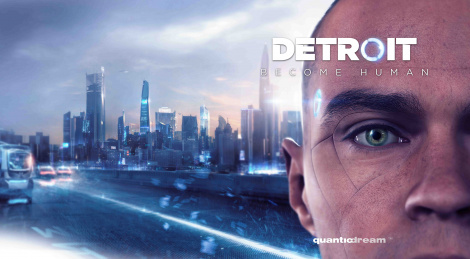
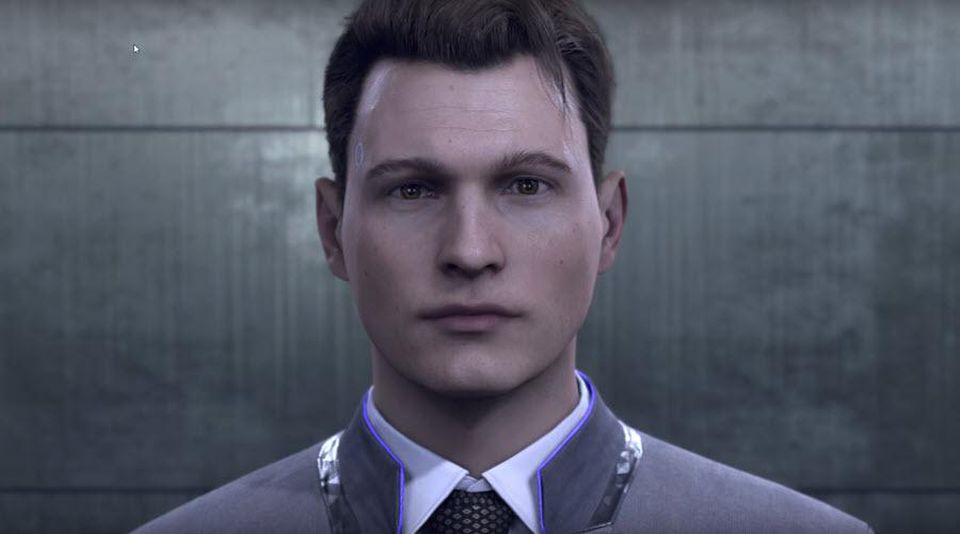
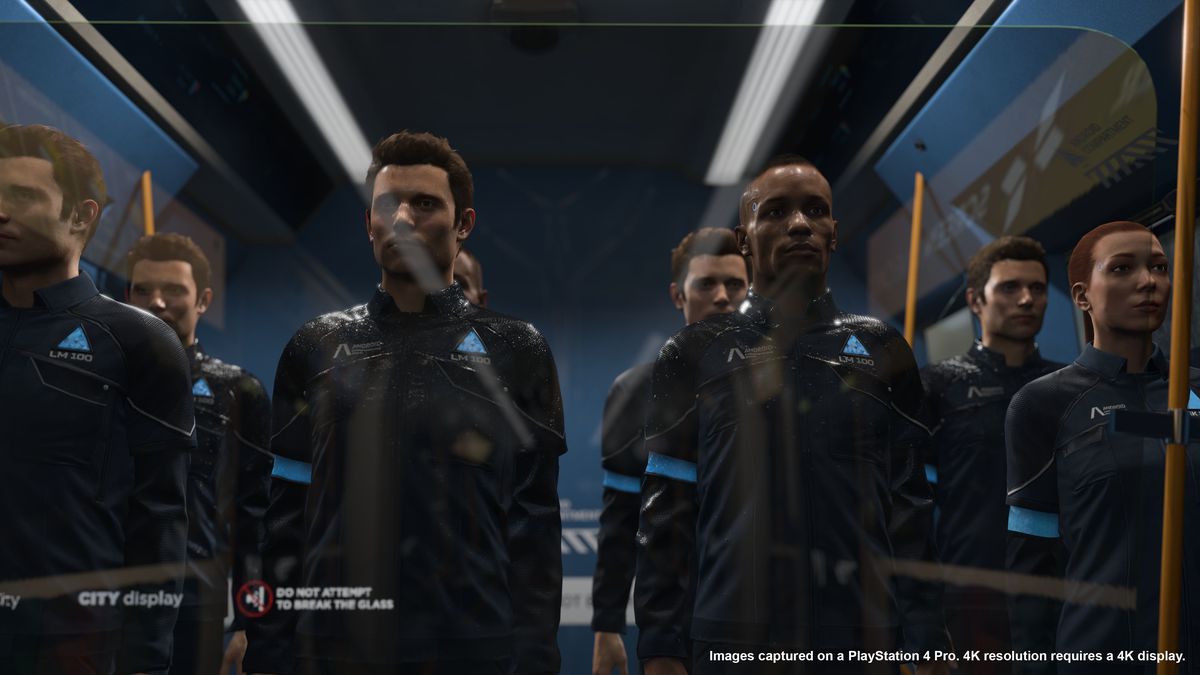
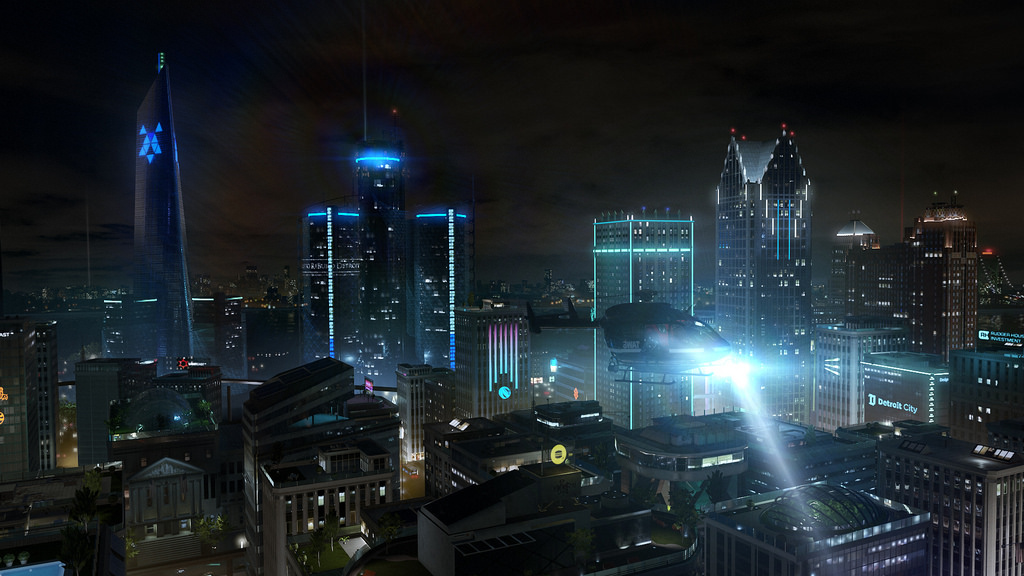
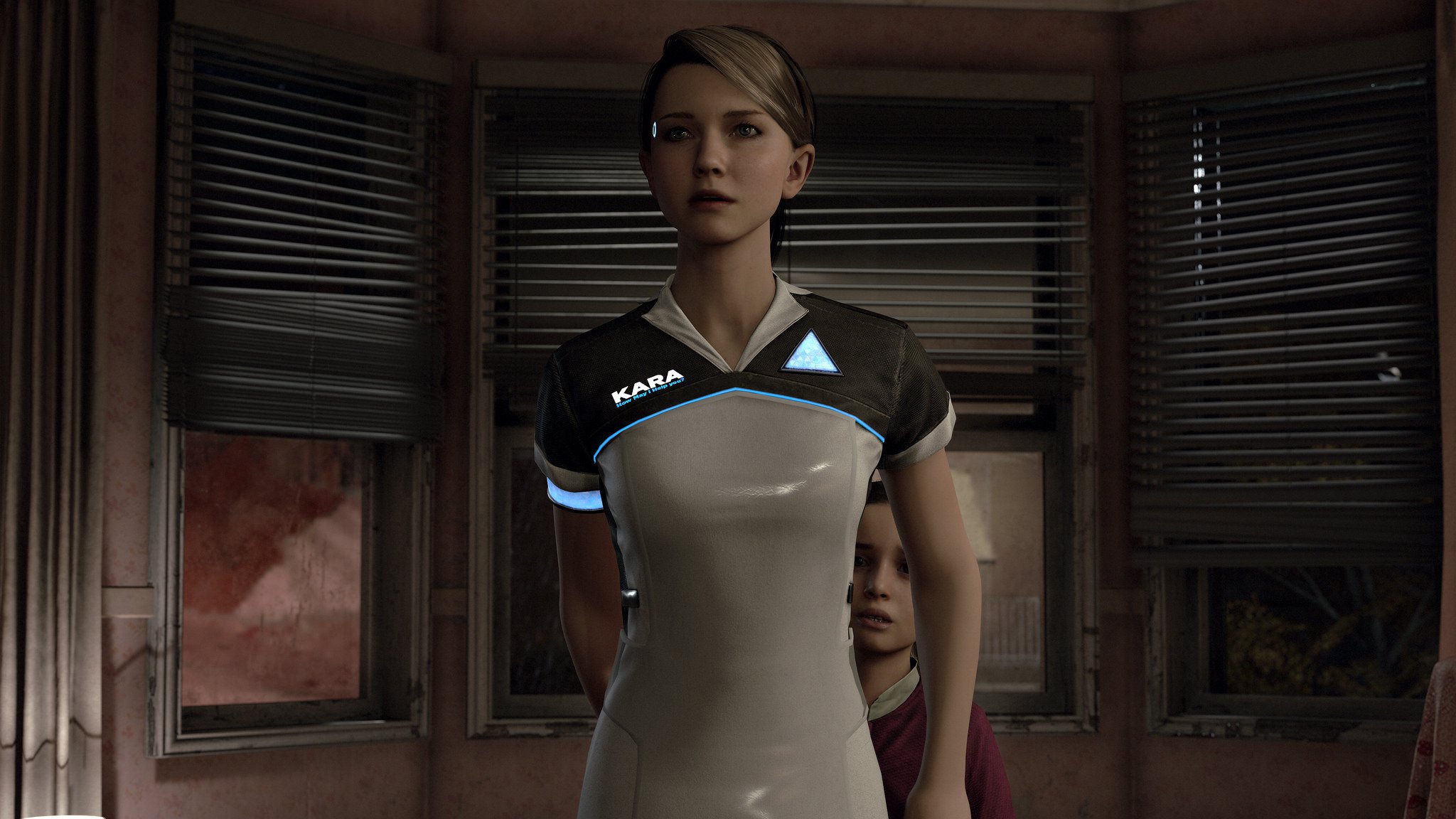
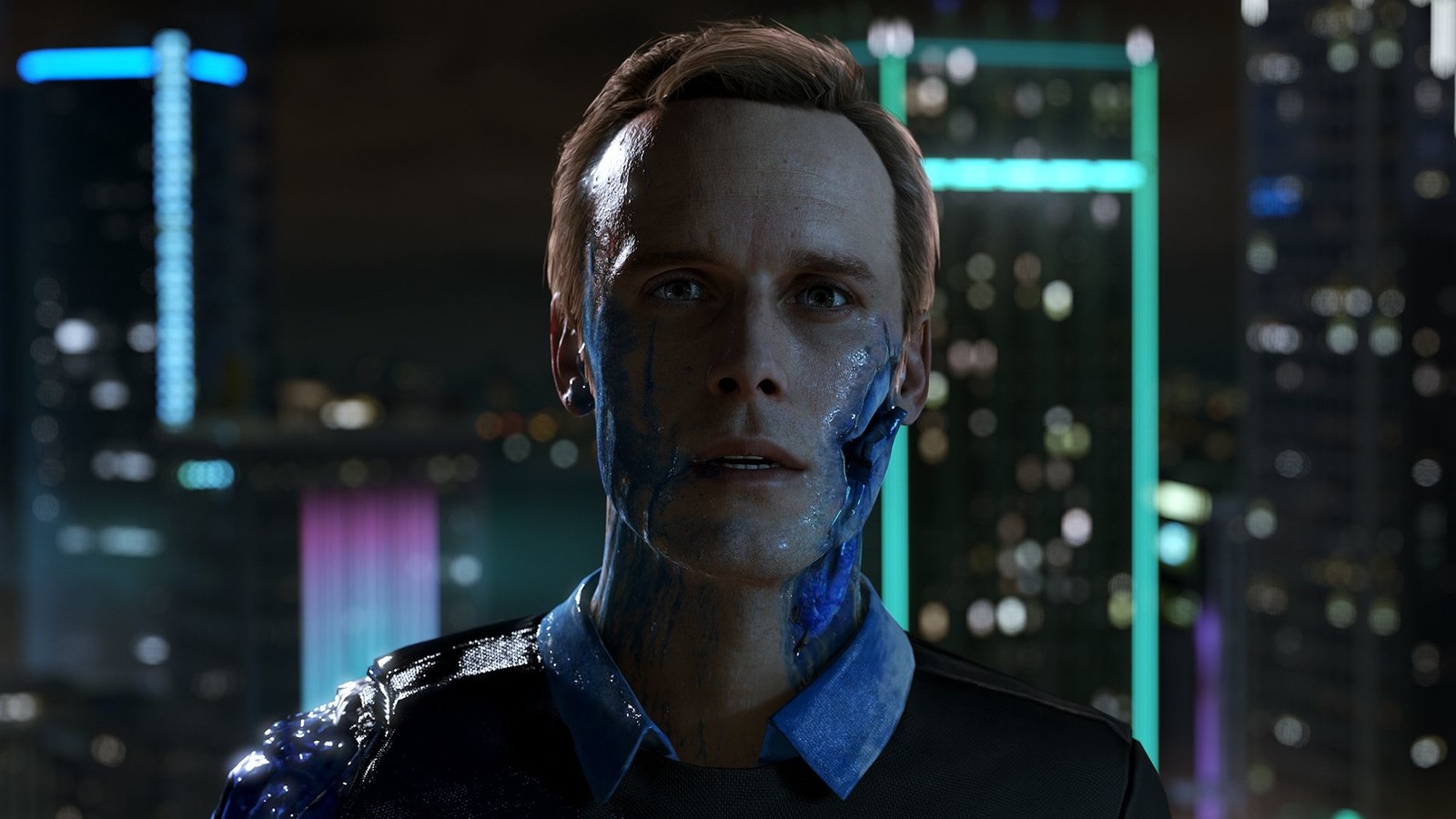
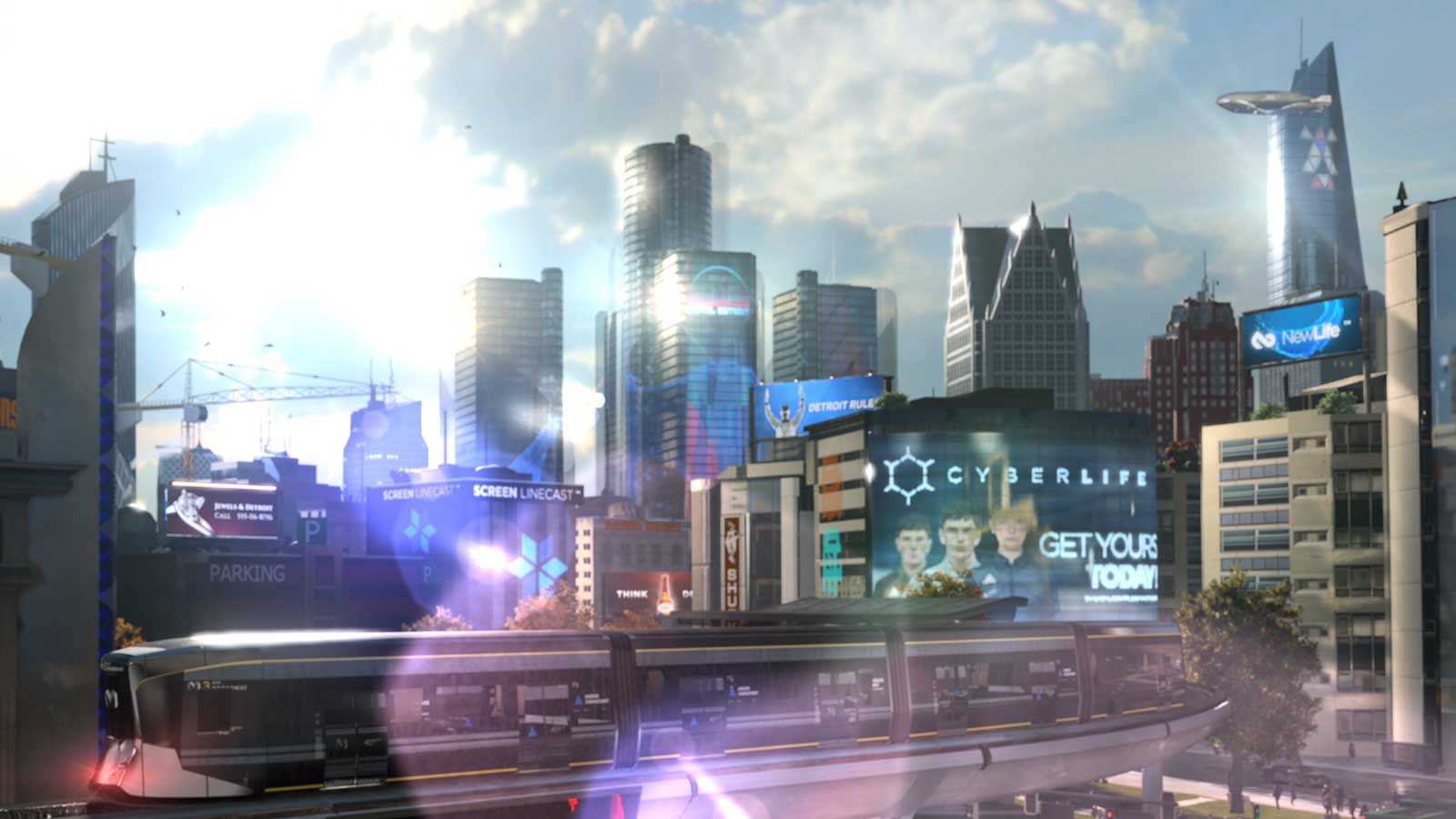





Published: May 27, 2018 06:49 pm